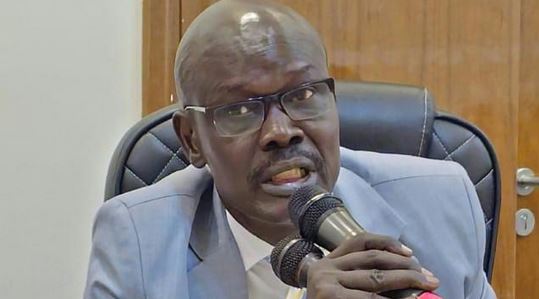The Deputy Chairperson of the National Election Commission (NEC), Gabriel Deng, on Thursday outlined the commission’s efforts to address the challenges of civic and political space in the country as it prepares for elections in two years.
Speaking to media, civil society organizations (CSOs), and political parties, in Juba during a workshop, Deng emphasized the importance of enabling civic and political space for credible elections.
“Allow me, on behalf of the National Election Commission, to share some thoughts on civic and political space as it pertains to elections,” Deng said.
Given South Sudan’s experience in 2010 and the broader African context, Deng highlighted persistent challenges, including restricted freedom of expression, media constraints, human rights violations, voter apathy, weak institutions, impunity, and restrictive legislation such as the National Security Act.
He also slammed the requirement for citizens to seek permission from the Ministry of Justice to sue government institutions or officials, describing it as a limitation on accountability and justice.
Deng explained that despite the challenges, NEC has begun preparations to address issues that may impact the electoral process.
He said, recently, the commission organized a retreat to deliberate on potential hurdles and approved three critical documents to guide its operations as the NEC Code of Conduct, a framework to ensure ethical and professional behavior among NEC officials during the election process, and a regulation for observers, media, party agents, and special guests.
“This regulation emphasizes the role of observers, media, and other stakeholders in ensuring free, fair, and credible elections,” he said “It outlines their responsibilities and includes a code of conduct to promote accountability. Free and fair elections are impossible without active participation from observers and the media.”
He stressed that adherence to the regulations would enhance transparency and integrity in the electoral process.
Deng acknowledged the concerns raised by participants about accountability and impunity, emphasizing that all stakeholders, including political parties, media, and observers, must adhere to established codes of conduct to ensure the credibility of the election.
He called for collective action to address civic space challenges, highlighting that enabling freedom of expression, strengthening institutions, and fostering accountability is essential to ensuring a credible electoral process in South Sudan.




